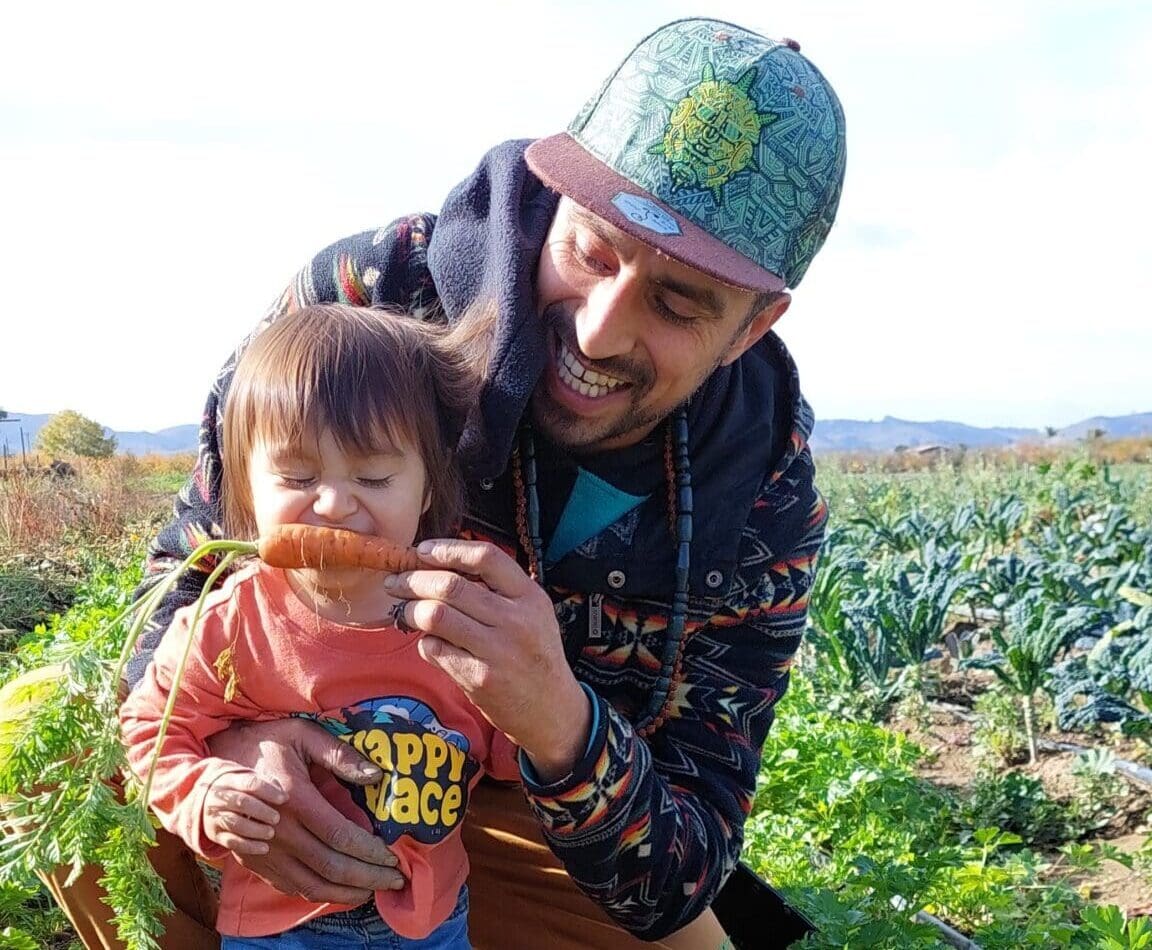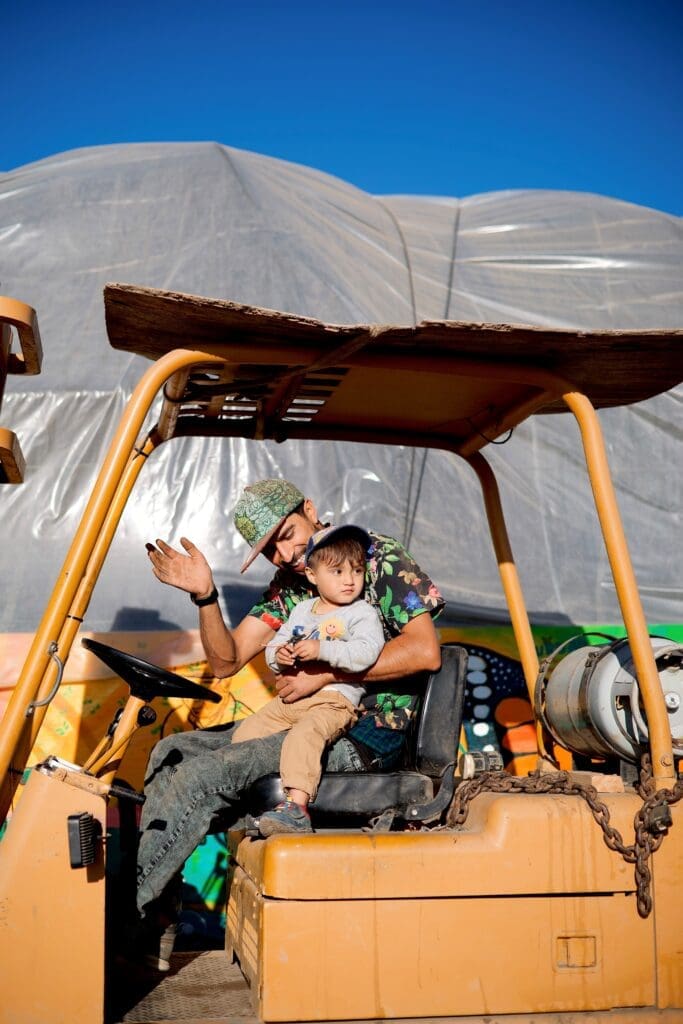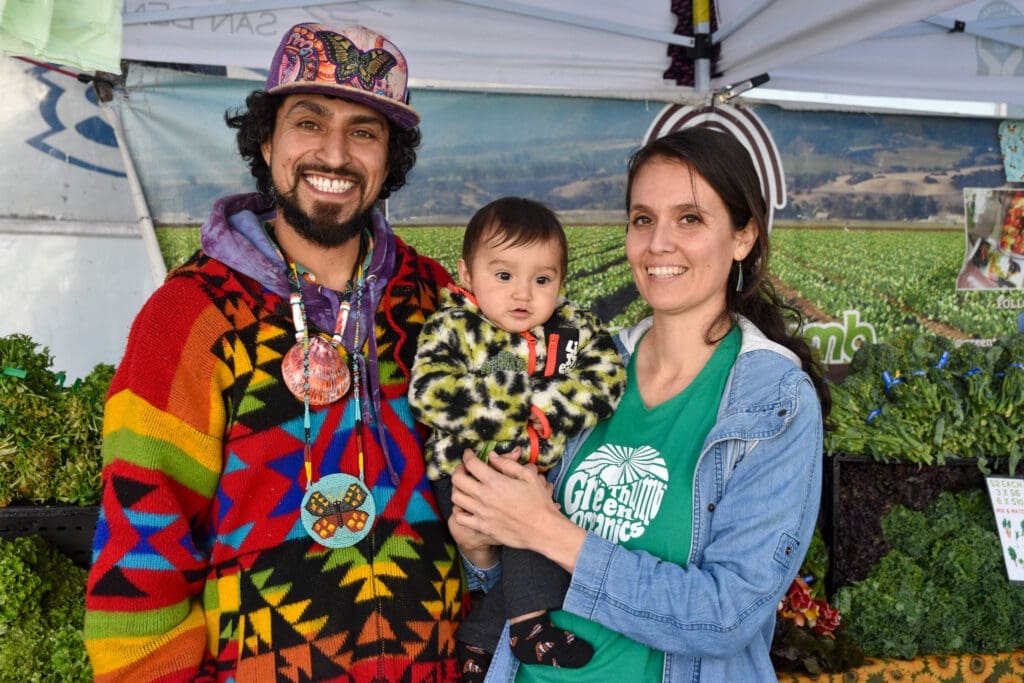
When old redwood trees surround Rudy Jimenez (’07, Silver Star), he slips into a meditative state.
“They create a reserve around them to sustain themselves and help other trees,” he says. “So, for me, life is all about creating a strong foundation for other people to thrive.”
Jimenez didn’t grow up dreaming of being a farmer. His late father, a lifelong field worker, encouraged him to get an education instead. He didn’t want his son to spend his life under the same sun, bent over rows of crops, earning a low wage. Rudy took that advice and pursued business.
At 22, he owned around 20 vending machines throughout California’s Central Coast. “I wanted to be an entrepreneur,” he says. “Build my own business that can make me income.”
For a while, it worked. The machines made money. But one day, a customer pointed at a soda machine and told him how his daily soft drink habit had led to diabetes and surgery. That moment stayed with him. Jimenez realized he didn’t want to profit from what was harming people.
“I was done with the vending machine business after that,” he says. “I saw the direct consequences of processed food.”
A Return to the Land
What started as a decision to walk away from vending machines turned into something much bigger. In 2015, Jimenez founded Green Thumb Farms in San Juan Bautista. He started with just a quarter of an acre, focusing on growing clean, diverse and sustainable produce. Over time, he has expanded the farm to 24 acres.

Jimenez’s connection to nature runs deep and spans several years. “I grew up on [Pisoni Farms in Gonzales] until I was 12,” he says. “I had access to the land. I never knew cement until I moved to [East Salinas].”
Jimenez’s road to Green Thumb Farms wasn’t a straight line. “For me, the more you fail, the better you get,” he says. “Because now you know how to catch yourself in similar situations. My journey unfolded through failure, through learning.”
That same discipline carried him through years of uncertainty. Jimenez’s East Salinas neighborhood was immersed in gang activity.
“There was constant violence,” he recalls. “As a kid who grew up on a ranch, going into that environment had me asking a lot of questions.”
At the same time, Jimenez felt like he was slipping through the cracks in school. There wasn’t anyone there who would offer him guidance, so he just stopped attending, which led him to Rancho Cielo, where he found a place to belong and a real chance for success.
“Rancho Cielo helped me hold onto my education and look forward to the future,” he says.
Nearly 20 years later, former Monterey County Probation Officer Dave Campos clearly remembers working with Jimenez when he was a student.
“He was very quiet,” Campos says. “But I could tell he was smart. He always seemed to be observing everything that was going on.”
In addition to ensuring Jimenez received his high school diploma, Rancho Cielo helped him secure his first job, where he worked with children at the Salvation Army.
He then spent seven years employed by a retirement facility in Carmel Valley. “That job was more about taking care of people’s health,” Jimenez says. “[It was about] helping people step out of their normal programs and transform their realities.”
Ultimately, he was drawn to the work his father did for so many decades. After Jimenez completed the Farmer Education Program through the Agriculture & Land-Based Training Association (ALBA) at Hartnell College, everything fell into place. “Growing my own food is like printing my own money,” he says. “If I can grow my own food, I can create better practices within myself.”
Building a Sustainable Future
Jimenez views his life and high school education as part of a larger ecosystem, much like the ancient redwood trees he admires. “I see Rancho Cielo as a dream come true for kids,” he says. “It’s a space for people to grow; a cloud in heaven, and a great opportunity to create good career pathways. We need more kids transforming the economy.”
When he met his partner, Maria Gonzalez, that vision expanded. “I initially wanted to start supporting a local farmer, most importantly a BIPOC (Black, Indigenous and People of Color) farmer,” Gonzalez says. “Rudy’s mission aligned with mine. I had a vegan business, and it was important to him to support vegan food.”
After visiting the farm, she realized she could help Jimenez. “They had extra pumpkins and squash, so we started collaborating on vegan pies and bringing them to markets,” she says.

In 2024, Gonzalez opened Cultiva, an entirely plant-based restaurant less than three miles from Green Thumb Farms, where most of its ingredients are grown.
Jimenez and Gonzalez extend their passion for healthy living by selling at five farmers’ markets in San Francisco, including two at the iconic Ferry Building. They also sell at markets that serve low-income communities.
“It inspires me to see myself as a parent,” Jimenez says, “and be able to guide other parents in giving their kids the best food for brain and health development. We go to grocery stores and think everything grows all year round, but real food has seasons. Sometimes kids don’t like vegetables because they’ve never tasted them ripe.”
Food, Family and Spirit
Jimenez and Gonzalez’s work extends beyond growing and selling produce. They collaborate with nonprofit organizations, such as the Urban Arts Collective in Salinas and Urban Tilth in Richmond, to create healthier and more sustainable food systems. “A lot of the work we do is spiritual and mental,” Jimenez says. “Building a healthy environment can create space for personal growth. It’s all about creating a safe space for other people to grow.”
His earliest memories of the farm still guide him. “When I was five, my conscience expanded beyond my understanding of myself,” Jimenez says. “When I moved to the city, I felt small. I know we have more than five senses, but some of them only activate in nature. You start to understand your environment differently.”
Now, with a three-year-old son, Rudolfo, Rudy and Maria’s purpose has taken on more profound meaning. “We’ve raised him plant-based since day one,” Gonzalez says. “He loves coconuts, veggie sandwiches, salads and garbanzos. He’s taught us that it’s all about how we present our food and ourselves.”
From vending machines to vegetables, Jimenez’s story is about restoring the land, health and community. Like the old trees, his roots run deep, and his mission is simple: Grow strong enough to help others grow, too.
“Education is everything,” he says after visiting Rancho Cielo for the first time in several years. “It was a safe space where I was able to grow. It gave me focus.”



